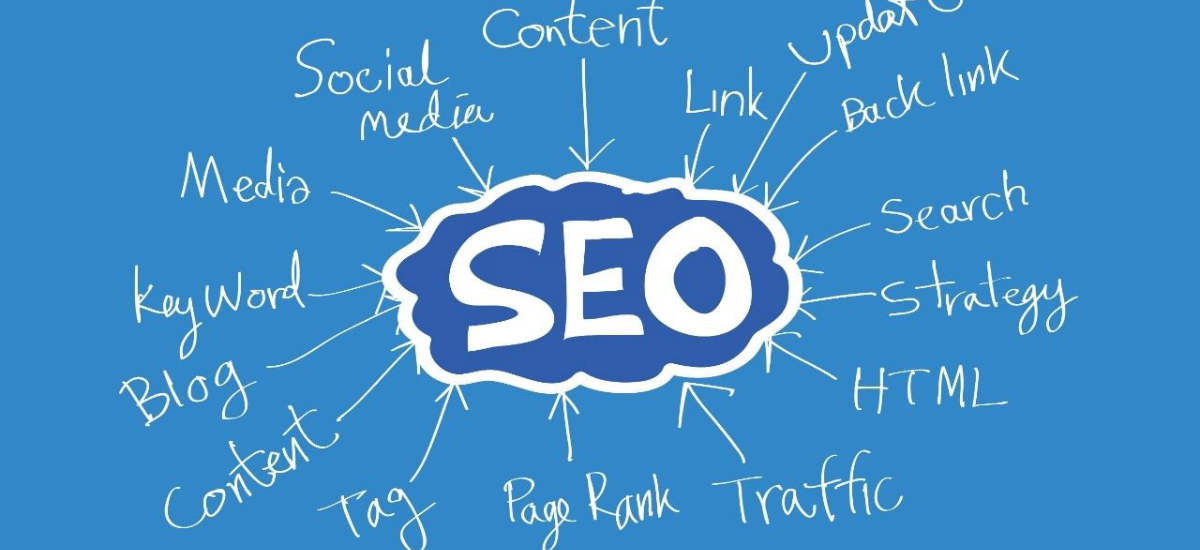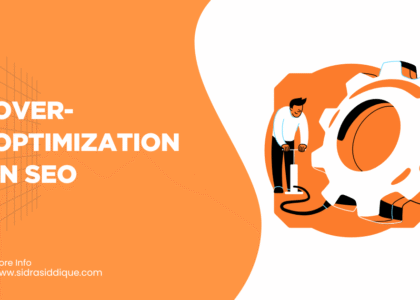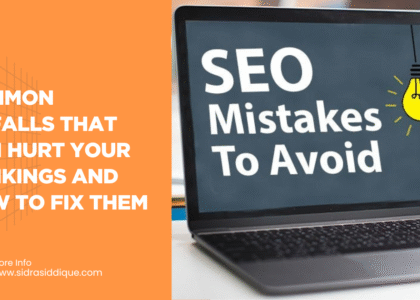If you’ve ever wondered what is SEO, you’re not alone. SEO stands for Search Engine Optimization, and it’s the process of improving a website’s visibility on Google and other search platforms. It helps websites appear higher in organic search results, bringing in more visitors without paying for ads. By understanding how search engines rank websites, businesses can gain consistent traffic, leads, and sales.
SEO is not just about keywords—it involves improving the entire user experience, from page speed to mobile design. Whether you’re a blogger, store owner, or marketer, knowing how does SEO work can unlock the full potential of your online presence and boost your search engine rankings.
What is SEO in Digital Marketing?
SEO in digital marketing is a big part of how companies grow online. It helps boost website visibility and builds brand trust. It supports other areas like social media and email by attracting the right audience through search.
The benefits of SEO in digital marketing go beyond rankings. It works alongside paid ads, content marketing, and social channels to reach users at all stages of the buyer journey. SEO brings organic search results, saving money in the long run.
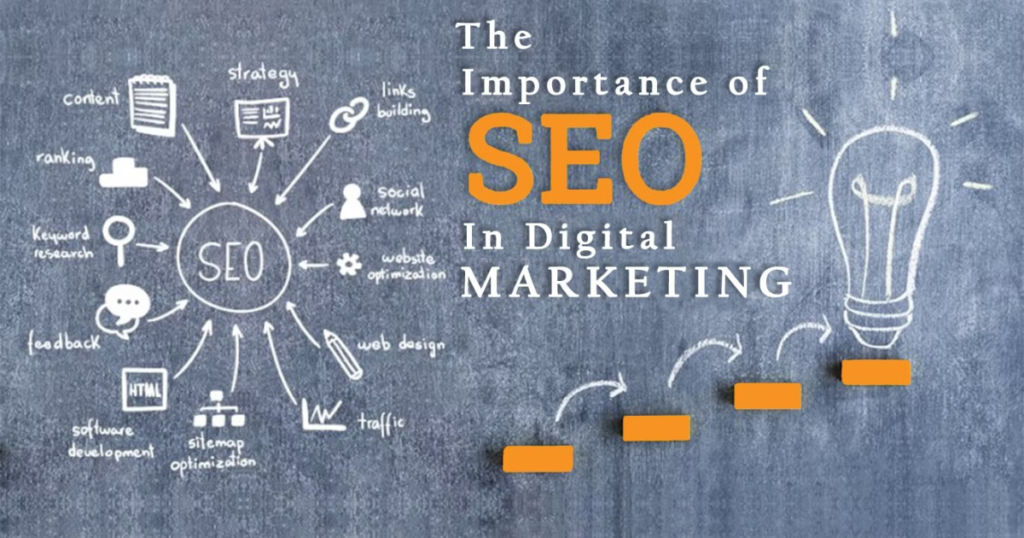
Why Is SEO Important for Online Success?
If you want your business to succeed online, SEO is essential. It helps bring in organic website traffic, improve click-through rate (CTR), and reduce bounce rate. Google ranks websites that provide a better user experience higher in results.
Websites that use SEO best practices for 2025 stay ahead of their competitors. You gain more leads, build trust, and see better SEO ROI. Businesses that ignore SEO often struggle to appear in search engine results.
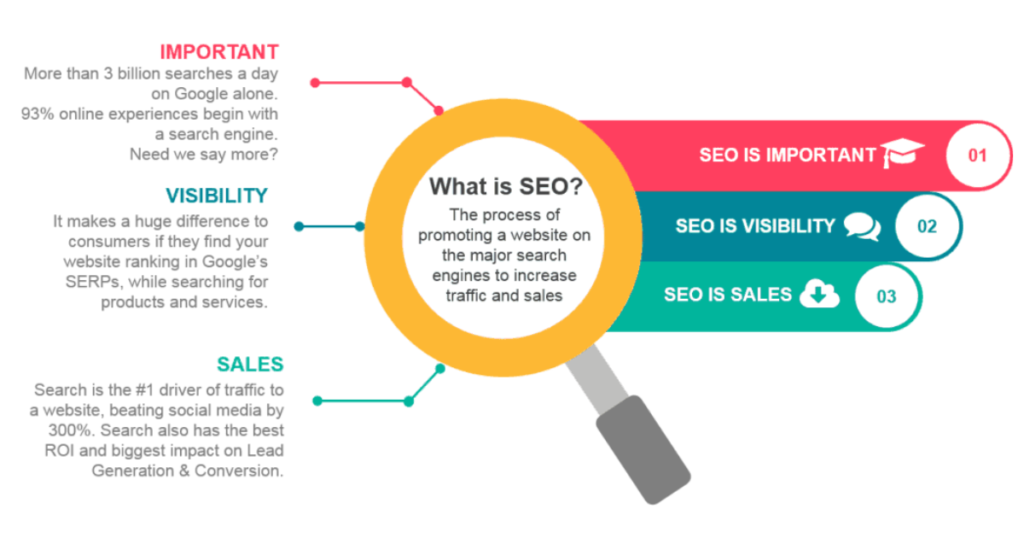
What Are the Three Pillars of SEO?
On-page SEO involves content optimization, keyword usage, and optimizing title tags and meta descriptions. This improves relevance for users and search engines.
Off-page SEO includes building backlinks strategy and growing your domain authority through shares, mentions, and quality links. Technical SEO involves fixing site speed, ensuring mobile optimization, and using structured data.
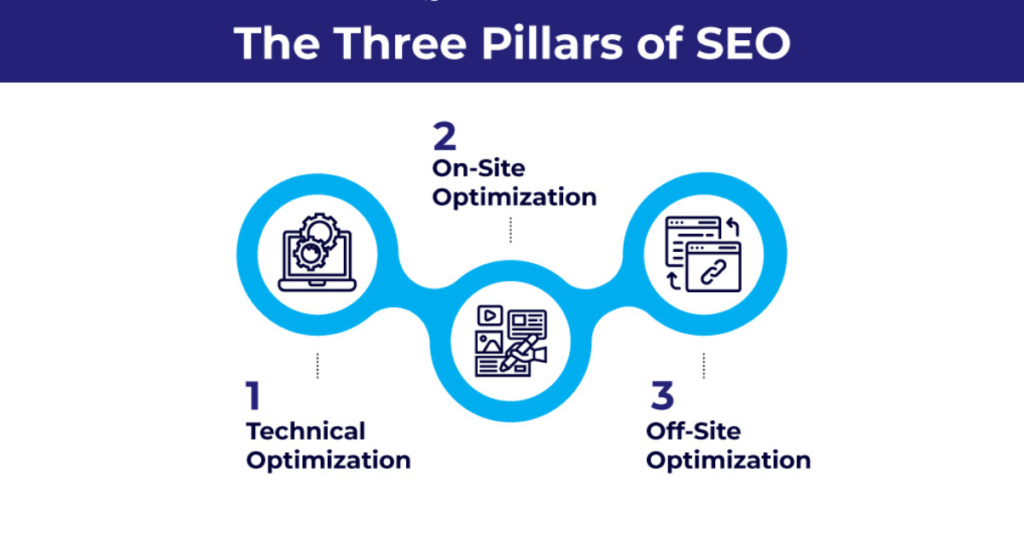
How Search Engines Work
Search engines perform three main tasks: crawling, indexing, and ranking. Crawling happens when bots scan your website. Indexing is when search engines save and organize your content.
Ranking is where Google’s ranking algorithms decide your position in search engine results. They use factors like page relevance, speed, and mobile-first indexing.
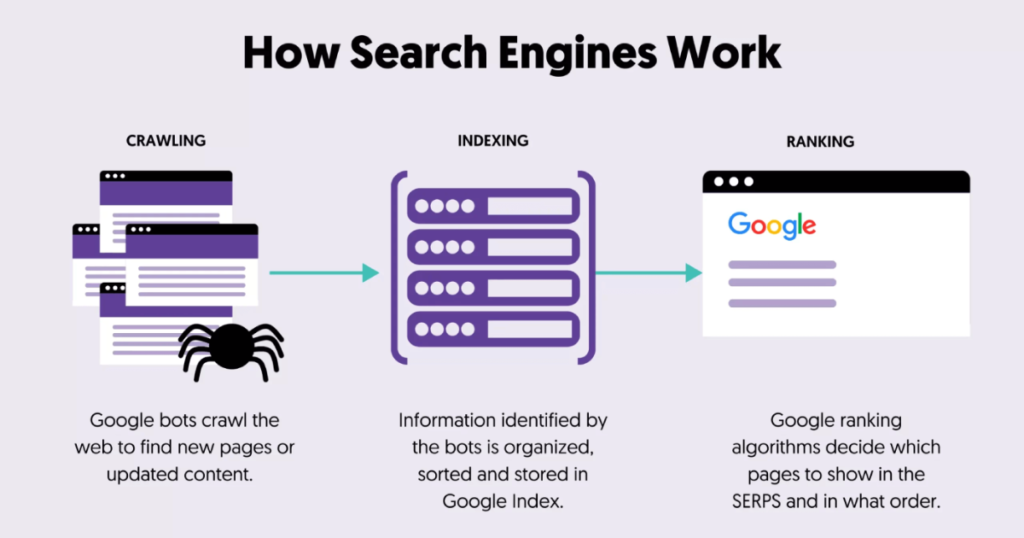
How Does Google Rank Search Results?
How search engines rank websites depends on hundreds of signals. Google uses machine learning systems like RankBrain and E-A-T (Expertise, Authoritativeness, Trustworthiness) to check quality.
User behavior signals like dwell time, bounce rate, and page interaction also matter. The better your content and site structure, the higher your chances of ranking well.
How to Optimize for Google’s Algorithm
To do well, you need to know how to optimize for Google’s algorithm. Focus on improve page load speed for SEO, SEO for mobile-first indexing, and clean design. Use content management systems that allow easy edits.
Include relevant keywords, improve user experience, and write for search intent. Always focus on creating SEO-friendly content that answers real questions.
Organic Search vs. Paid Search: What’s the Difference?
Organic traffic vs paid traffic shows how you get visitors. Organic traffic comes from SEO. Paid traffic comes from paid search advertising like Cost per click (CPC) ads.
SEO vs SEM differences include cost and timing. Paid gives quick results but can be expensive. SEO takes time but gives long-term results. Both can work together for better reach.
What is an SEO Strategy and Why Do You Need One?
You need to know steps to implement SEO strategy to succeed. It helps you plan content, fix technical issues, and build backlinks.
A smart digital marketing strategy includes SEO as a key part. It supports your business goals and targets the right users.
How to Set SEO Objectives and Track Success
How to set SEO objectives means making clear, measurable goals. Track progress using Google Search Console, Google Analytics, and other SEO metrics.
These tools help you see traffic, keyword rankings, and user actions. When you know what works, you can do more of it.
Examples of SEO Objectives by Business Type
Every business has different goals. An eCommerce site might aim to increase product visibility. A local shop will focus on SEO for local businesses. A blog might want more organic website traffic.
Here’s a table showing SEO goals:
| Business Type | SEO Objective |
| eCommerce | Increase product page traffic by 30% |
| Local Business | Rank in top 3 local results for 5 keywords |
| Blog | Grow monthly visitors by 50% |
| Service Provider | Generate 20% more leads via contact forms |
What Are the Main Types of SEO?
There are many types of SEO. Local SEO helps people find your business nearby. eCommerce SEO focuses on product listings. Enterprise SEO deals with big sites. International SEO targets users in different countries.
Each type uses its own mix of technical optimization checklist, content, and link building to get the best results.
SEO Tools You Should Be Using
There are many SEO tools that help with keyword research, backlink checks, and audits. Popular choices include Semrush, Ahrefs, Surfer, and Screaming Frog.
Use Best tools for SEO analysis to check rankings, spot issues, and improve content. Many tools also offer free versions to start.
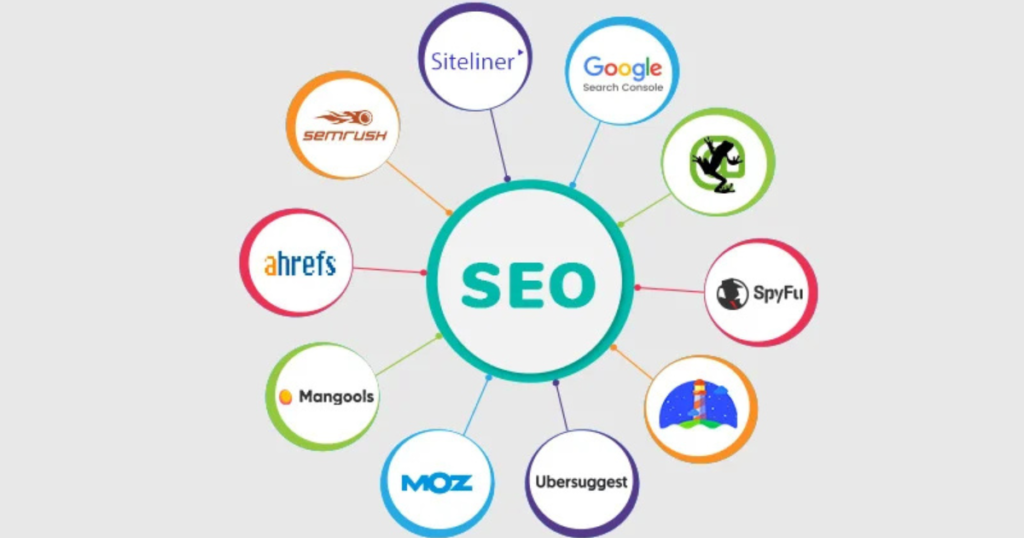
How to Become an SEO Specialist
How to become an SEO specialist starts with learning. Build a website, do practice projects, and take courses. Join SEO groups and follow expert blogs.
A career in SEO is flexible. You can work as a freelancer, with agencies, or in-house. Start small and grow over time.
What Skills Do You Need to Be an SEO Expert?
What skills are needed for SEO? You need to know keyword research, link building, and technical SEO. Good writing and analytics are also key.
Soft skills like critical thinking and communication help too. SEO is always changing, so you must keep learning.
How Much Can You Earn as an SEO Specialist?
SEO salary depends on where and how you work. Freelancers earn differently than agency employees. In the US, beginners might earn $50k/year, while top experts can earn over $100k.
In the UK, salaries range from £25k to £50k. Your skills, experience, and results affect your pay.
How to Learn SEO from Scratch
To learn SEO, start with free blogs and YouTube channels. Google has guides too. Use your own website as a test space. You can also take SEO tuition and step-by-step guidance at sidrasiddique.com, where I teach SEO in a simple, practical way.
Take online courses and join SEO forums. Try tools like Yoast and Ahrefs. The best way to learn is by doing real SEO.
How SEO Is Changing with AI and Automation
Future of SEO with AI is fast-changing. Tools like ChatGPT and AI Overviews help with research and writing. These are part of AI-powered SEO tools.
Use AI in SEO for better targeting, content ideas, and automation. Also explore predictive analytics to guess search trends and changes in Google algorithm.
How to Use SEO to Grow Traffic and Build Your Brand
You can grow with SEO by staying consistent. Keep updating your content, fix errors, and earn backlinks. These actions increase search engine rankings.
Over time, SEO builds trust and improves your brand image. Combine SEO with other channels for a strong digital marketing strategy that lasts.
Quote to Remember:
“Google only loves you when everyone else loves you first.” – Wendy Piersall
Final Thought: Keep learning. Stay current. SEO is not a one-time task—it’s a journey. With the right plan, tools, and mindset, success is just a search away.

